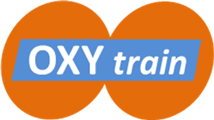The Schwaneberg group accounts for 60 members that in state-of-the art S1-laboratories in the ABBt-Biotechnology Institute the Leibniz Institute for Interactive Materials (completion in 2012). Within the last decade, the Schwaneberg work group has achieved a global leadership position in the field of protein engineering through directed evolution and rational design. Its sub groups with complementary skills collaboratively strive towards gaining a deep insight into the fundamental principles of protein design and evolution. Their scientific competence is funded on a large number of methods and technology platforms for directed protein evolution which were developed in-house methods. The combination of these methods leads to the development of customized biocatalysts of pivotal importance for industrial process in the bioeconomy as demonstrated through more than 150 peer-reviewed publications and more than 70 patents.
Dr. Anna Joelle Ruff is an expert in the field of sustainable bioeconomy through enzyme optimization. Her unique scientific proficiency lies in method development (e.g. methods for cloning (PLICing), mutagenesis (SeSaM), and recombination (PTRec)). A key technology resulting from her research is a whole cell – ultra high throughput screening method for P450 monooxygenases. Her work group provides a large array of customized oxygenase, oxidoreductase, lipase and protease (among others) enzymes for industrial applications. Dr. Ruff`s work furthermore aims at improving phosphate recovery from the agricultural waste stream through biological ressources (i.e. sugar beet, rap) or via phytase application.
Professor Dr. Ulrich Schwaneberg is professor for biotechnology at RWTH Aachen University and a scientific leader of DWI-Leibniz Institute for Interactive Materials. As the inventor of the sequence saturation mutagenesis method SeSaM (and partner of the company with the same name) for protein engineering and spiritus rector of the KnowVolution strategy, he provided decisive contributions to the field of directed protein evolution. Under the leadership of Prof. Schwaneberg, his work group developed groundbreaking methods for cloning, mutagenesis, recombination and screening (see above), attracted a multitude of industrial cooperations and received a large number of grants and research prices, most recently the 1.7 million € price for the “Next generation of biotechnological methods” awarded by the German Ministry for Research and Education.
Recent top publications:
Cheng, F., Zhu, L., Schwaneberg, U. (2015). Directed evolution 2.0: improving and deciphering enzyme properties. Chem. Commun., 51, 9760-9772.
Pitzler, C., Wirtz, G., Vojcic, L., Hiltl S., Böker, A., Martinez, R., Schwaneberg, U. (2014). A Fluorescent Hydrogel-based Flow Cytometry High-Throughput Screening Platform for Hydrolytic Enzymes. Chemistry & Biology, 21, 1733-1742.
Ruff, A. J., Dennig, A., and Schwaneberg, U. (2013). To get what we aim for: progress in diversity generation methods. FEBS J., 280, 2961-2978.
Dennig, A., Lülsdorf, N., Liu, H., and Schwaneberg, U. (2013). Regioselective o-hydroxylation of monosubstituted benzenes by P450 BM3. Angew. Chemie, 53, 8459-8462.
Ruff, A. J., Dennig, A., Wirtz, G., Blanusa, M., and Schwaneberg, U. (2012). Flow cytometer-based high throughput screening system for accelerated directed evolution of P450 monooxygenases. ACS Catalysis, 2012, 2, 2724-2728.

